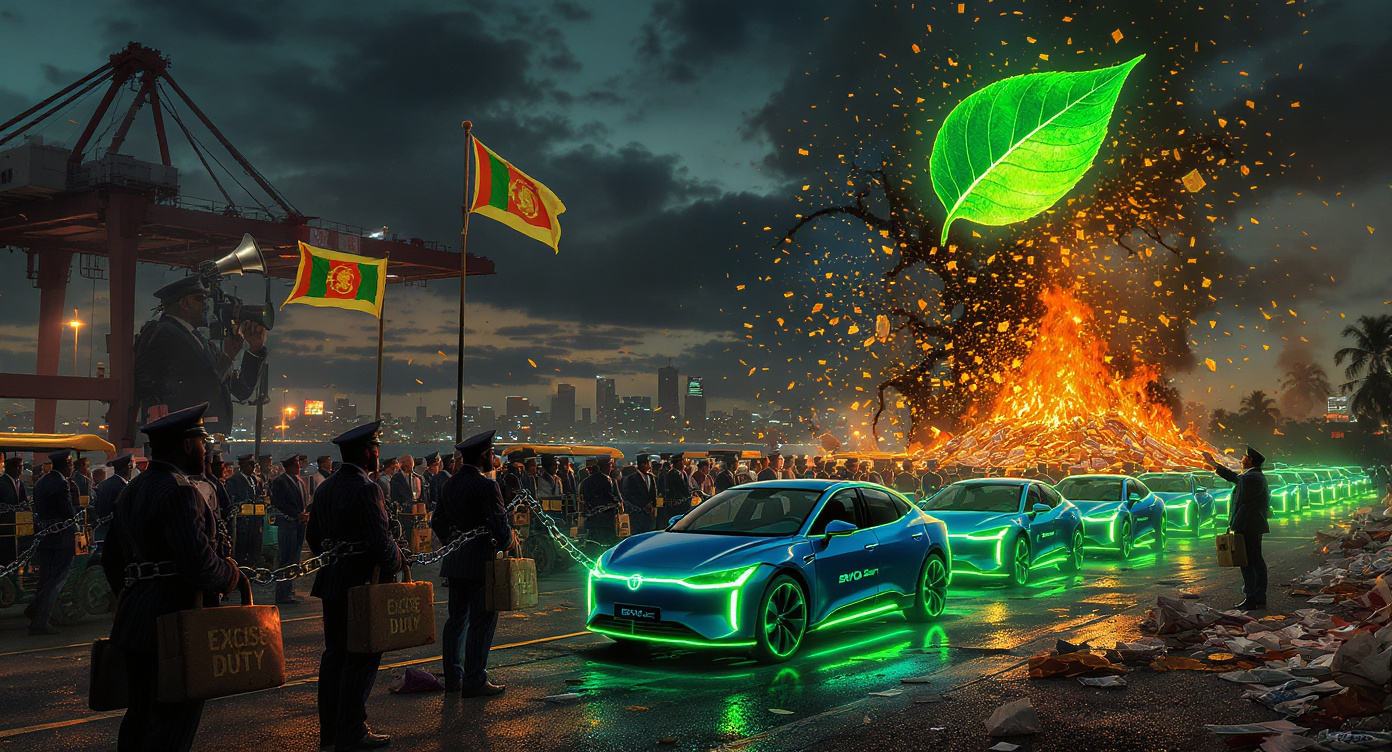The BYD-Customs Dispute: A Snapshot

John Keels Auto (JKCG Auto), the official BYD distributor in Sri Lanka, is embroiled in a high-profile tax evasion probe with Sri Lanka Customs over the import of over 1,000 BYD Atto 3 electric vehicles (EVs). The core issue revolves around the alleged under-declaration of motor capacity—from 150 kW to 100 kW—to evade higher excise duties on vehicles above 100 kW. This led to the detention of shipments worth billions of rupees, with courts ordering the release of 506 units in September 2025 under bank guarantees, while buyers face retroactive tax hikes. Amid the uncertainty, JKCG has halted pre-orders for battery electric vehicles (BEVs) and is offering customers refunds or alternatives like plug-in hybrid electric vehicles (PHEVs) such as the Seal 5, Seal 6, or Shark 6.
Traditional Auto Mafia Conspiring Against EVs
Sri Lanka's entrenched used car import lobby—often dubbed the "auto mafia"—has long resisted the EV shift, allegedly colluding with rogue Customs officials to sabotage imports through arbitrary detentions and undervaluation probes. Recent scandals, like the BYD case, are seen as part of a "dirty war" favoring cheap, polluting used petrol/diesel imports over cleaner EVs, potentially orchestrated to protect a Rs. 700 billion annual market dominated by second-hand Japanese vehicles.
High Taxes on Vehicles
Vehicle import duties in Sri Lanka remain among the world's steepest, often exceeding 250% of the CIF value, including excise levies up to 300% for larger engines and a 50% surcharge on customs duties. The five-year import ban lifted in February 2025 triggered a surge, with over 14,000 units cleared by mid-year, but taxes have ballooned prices—e.g., a mid-range sedan can cost Rs. 20-30 million, akin to a Colombo apartment—driving projected 2025 revenue to Rs. 700 billion, far above the Rs. 460 billion target.
Impact on Sri Lanka's Green Goals
These punitive taxes undermine Sri Lanka's ambitions for 20% EV adoption by 2030 and net-zero emissions by 2050, as high costs deter buyers and stifle infrastructure like charging networks. While green incentives exist (e.g., lower duties for EVs under 100 kW), the BYD dispute exposes regulatory gaps, eroding trust and slowing the transition to renewables—EVs could cut transport emissions (30% of total) but face backlash from outdated policies favoring fossil fuels.
Economic Drag from Overpriced Vehicles
Siphoning household savings into ultra-expensive cars—up 20-30% post-ban—curbs disposable income for education, housing, or small businesses, stifling broader investment and GDP growth in a fragile post-crisis economy. This "bubble" risks black-market proliferation and credit crunches, as pent-up demand inflates prices without proportional job creation, perpetuating inequality and slowing recovery to 3-4% growth in 2025.
Government's Role and Tax-Bragging Folly
The AKD administration bears primary blame for prioritizing short-term revenue via import taxes—easier to collect than income or property levies—over sustainable policy, ignoring IMF warnings on affordability and green alignment. Bragging about Rs. 700 billion in vehicle duties ignores the backlash: it fuels evasion scandals, hampers EV momentum, and burdens consumers in a nation still reeling from 2022's collapse, where such "wins" exacerbate poverty rather than foster inclusive growth.






About the Author
Ziyan Junaideen -
Ziyan is an expert Ruby on Rails web developer with 8 years of experience specializing in SaaS applications. He spends his free time he writes blogs, drawing on his iPad, shoots photos.